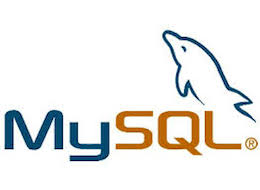
In this tutorial, we will show you how to install and configuration of MySQLTuner on your Ubuntu server. For those of you who didn’t know, MySQL is a widely used open-source relational database management system known for its reliability, performance, and ease of use. However, even with its impressive capabilities, there’s always room for optimization to ensure your MySQL server runs at peak efficiency. This is where MySQLTuner comes into play. MySQLTuner is a powerful Perl script that analyzes your MySQL installation and provides valuable insights and recommendations to fine-tune your server’s performance.
This article assumes you have at least basic knowledge of Linux, know how to use the shell, and most importantly, you host your site on your own VPS. The installation is quite simple and assumes you are running in the root account, if not you may need to add ‘sudo‘ to the commands to get root privileges. I will show you the step-by-step installation of MySQLTuner on a Ubuntu.
Prerequisites
- A server running one of the following operating systems: Ubuntu and any other Debian-based distribution.
- It’s recommended that you use a fresh OS install to prevent any potential issues.
- An active internet connection. You’ll need an internet connection to download the necessary packages and dependencies for the MySQLTuner script.
- A
non-root sudo useror access to theroot user. We recommend acting as anon-root sudo user, however, as you can harm your system if you’re not careful when acting as the root.
Install MySQLTuner on Ubuntu
Step 1. To ensure a smooth installation process and avoid any compatibility issues, it’s always a good practice to update your Ubuntu system to the latest packages. Run the following commands to update and upgrade your system:
sudo apt update sudo apt upgrade sudo apt install perl
Step 2. Installing MySQL or MariaDB.
MySQLTuner requires an existing MySQL or MariaDB server installation on your Ubuntu 22.04 system. If you haven’t already installed the database server, you can do so by running the following command:
sudo apt install mysql-server
Once the installation is complete, verify that the MySQL/MariaDB service is running by using the following command:
sudo systemctl status mysql
If the service is active and running, you’re good to go!
Step 2. Installing MySQLTuner on Ubuntu.
By default, MySQLTuner is not available on the Ubuntu base repository. Now run the following command below to download the latest version of MySQLTuner from the GitHub page to your Ubuntu system:
wget https://raw.githubusercontent.com/major/MySQLTuner-perl/master/mysqltuner.pl
Move the downloaded file to the /usr/local/bin/ directory by running the following command:
sudo mv mysqltuner.pl /usr/local/bin/
Now that you have downloaded the mysqltuner.pl script, you need to make it executable to run it directly without specifying the Perl interpreter. To do this, use the chmod command with the appropriate permissions. In your terminal, navigate to the directory where you downloaded the script and run the following command:
sudo chmod +x /usr/local/bin/mysqltuner.pl
Finally, run the following command to start MySQL Tuner:
sudo mysqltuner.pl
As a result, you should get something like this:
-------- Recommendations ----------------------------------------------------- General recommendations: Run OPTIMIZE TABLE to defragment tables for better performance Reduce or eliminate unclosed connections and network issues When making adjustments, make tmp_table_size/max_heap_table_size equal Reduce your SELECT DISTINCT queries which have no LIMIT clause Variables to adjust: query_cache_type (=4) tmp_table_size (> 18M) max_heap_table_size (> 18M)
When you run mysqltuner, it will show you a report with many suggestions. Just follow them. The exact suggestion will vary so it’s hard to cover all of them here. Rather I will give you some notes some of which are offered by mysqltuner itself.
Congratulations! You have successfully installed MySQLTuner. Thanks for using this tutorial for installing MySQLTuner to optimize MySQL on your Ubuntu system. For additional help or useful information, we recommend you check the official MySQLTuner website.